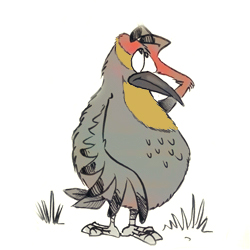By Guest Blogger Fatbirder :
Not so long ago there was only citizen science. In ancient Greece people made observations and recoded them and, on their basis, sciences began to be established. Some advanced rapidly like mathematics, others slowly and over centuries there were many false steps. Just before the industrial revolution when the principle of empiricism was formed (testing out hypotheses to see if something could be repeated over and over with the same outcome) all scientists were gifted amateurs wealthy enough to be free of the need to earn their daily bread. Gilbert White, a country vicar kept a diary of his observations of birds… in one sense the first real ornithologist, in another a private citizen doing his bit to advance knowledge.
Today, citizen science is a collaborative effort between scientists and the public to collect data and observations about the natural world. In the case of bird watching and conservation, citizen science can play a critical role in understanding bird populations and their habitats. If you’re a bird watcher or interested in conservation, you may have heard of citizen science or even done your bit to contribute.
Across most developed countries monitoring populations of birds and their movements is almost entirely a voluntary pursuit. Ringers in the UK; banders in the US, carefully trap birds, make notes on their condition and release them back into the wild with a small metal band around their leg. When birds are re-trapped or their corpses found these rings give information that does end up in the hands of professional scientist who analyse the data. But without an army of volunteers this just could not happen on a worthwhile scale.
But it’s not just this intense activity that can cull data from observations. As citizen scientists, many people participate in bird surveys, such as the Christmas Bird or New Year Counts, where volunteers across the country count birds in their local area. Regular counts of water birds on mudflats and estuaries (Webs counts) across the UK add more to our knowledge of bird movement, and their conservation, feeding or breeding needs.
You can also participate in eBird, a program where bird watchers record their sightings online. Initiated by Cornell University in the US, this has now expanded and can be added to by birders across the globe. These data are used by scientists to track changes in bird populations over time and to identify areas that are important for conservation.
Citizen science can also help scientists better understand bird behaviour. For example, the North American NestWatch program allows volunteers to monitor bird nests and record information about the birds’ behaviour and success rates. This information can be used to identify factors that affect nesting success, such as habitat loss or predation. In the UK and Europe work on bird Atlases is a constant effort with publications every decade or so showing which species thrive or decline over time. Because this is done scientifically by ordinary birders with 10 kilometre squares being intensively studied the changes can be traced back to local conditions. Have agricultural practices changed, what was the impact of weather and so on.
In addition to contributing to scientific research, citizen science can also be a valuable tool for education and outreach. By taking part in bird surveys and other citizen science programs, participants can learn more about the natural world and the challenges facing bird populations. They can also help spread the word about the importance of conservation and inspire others to get involved.
Overall, bird watching citizen scientists play a crucial role in conservation. By working together with scientists, bird watchers and other members of the public can help protect and conserve wildlife for generations to come. Birds being ‘indicator species’, monitoring them actually takes the pulse of all species sharing their habitat.
Some activists march, others lobby politicians, but birders have been leading the fight for decades by volunteering their time and establishing many of the facts that scientist use to inform us all of how we can help to save the worlds biodiversity and beautiful wildlife.
As ‘Citizen Smith’ used to say in the TV Comedy of the 1970s… Power to the People!
